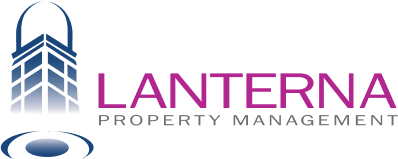EHT, SVT & UHT – The 3 taxes that all rental property owners need to know
Taxes, Taxes, Taxes – you can’t avoid them, but by taking the time to understand the key components of a tax that may apply to you, it is often possible to significantly minimize its impact on your time, your stress level and your bank balance.
This blog post is meant to bring awareness to 3 different taxes, each that can have a direct effect on the owners of rental property in BC. The scope of these taxes goes well beyond just owners of rental property, but for the purposes of this blog, it addresses just those that own or are thinking of obtaining a property for the purpose of renting it to tenants.
It is important to clarify that the information in this post should not be used to replace the advice of a Chartered Professional Accountant. Owning a rental property, even if it is just a single condo, is a business, and as such professional accounting advice should always be an essential part of the process. This includes ensuring that you are receiving the correct tax advice that applies to your current ownership, residency status, citizenship, circumstances and property type & location. All of these factors can have an effect on if and how one of the taxes below apply to you, and independent accounting advice from a
CPA is the only method of ensuring you are obtaining the correct advice for your unique circumstances.
The 3 taxes mentioned earlier were all introduced over the past few years, and each of them were implemented with the intention of increasing the number of available rentals in the rental market and making rental housing more affordable. The main intent of each is to bring residential properties that normally sit empty into the rental market.
These 3 taxes are:
- The Empty Homes Tax (EHT) – this municipal tax was introduced in 2017, and applies to residential property owners for properties that are within The City of Vancouver.
- Tax Rate – The EHT is an amount equal to 3% of the properties assessed value (note that this tax rate is subject to change from year to year so may have changed since the writing of this post. The same is true for the tax rates noted below for the other 2 taxes).
- The Speculation and Vacancy Tax (SVT) – this provincial tax was introduced in 2018, and applies to property owners of properties located in several municipalities in the province of BC, including all of the municipalities in the Greater Vancouver area.
- Tax Rate – The SVT is .5% of the properties assessed value for Canadian citizens or permanent residents of Canada who are not untaxed worldwide earners and 2% of the property’s assessed value for foreign owners and untaxed worldwide earners.
- The Underused Housing Tax (UHT) – this federal tax came into effect in 2022, and applies to property owners of properties located in Canada.
- Tax Rate – The UHT is an amount equal to 1% on ownership of property’s assessed value.
The vast majority of rental property owners will be exempt from paying all 3 of these taxes provided the occupancy requirements are met each year. Each has its own declaration requirements, and it is essential to make ensure you are aware of the process and deadlines for each to avoid incurring any penalties for late or missed declarations/filings.
The most common exemption, and the exemption we are focussing on for the purposes of this blog post, is having an arm’s length tenant for at least 6 months of the calendar year, or for a combination of qualifying periods that total 6 months in the calendar year.
A qualifying period means a term no less than 1 month. For example, if you have a furnished rental that has had 6 different tenants over the course of the calendar year, and each of those tenants rented the property for a term of 1 month, you would qualify for an exemption. If on the other hand you had 5 different tenants over the course of the calendar year and 4 of those rented the property for a term of 1 month, and the 5th rented the property for 6 weeks, you would not meet the requirements necessary for an exemption based on occupancy. This is very important to pay attention to in particular for owners of furnished rentals that use their properties for a portion of the year. Your use of the property will not count towards your 6 months of qualifying periods, and as such you need to take care not to fall short of this requirement and in turn being assessed all 3 taxes.
An arm’s length tenant refers to a tenant that is not a relative, spouse, sibling, parent or child and that has no special advantage in dealing with you.
There are many other exemptions that do apply that fall outside of the scope of this post, so it is important to obtain professional advice for information on these other exemptions.
Declarations Requirements
- EHT – You are required to submit a declaration each year for the property, even if there has been no change from the declaration for the previous year. This tax is a bit different than the Provincial SVT and the Federal UHT in that it only requires one declaration submission for the property, even in the case of multiple owners on title. Another distinction is that the EHT only applies to properties that are within the boundaries of The City of Vancouver, so if your rental property is in another municipality such as Burnaby or North Vancouver, you are not required to submit a declaration for it.
- Declaration Notice – Late November – This will be attached to your Advance Property Tax Notice which is sent out each year towards the end of November. The EHT declaration will be the yellow portion at the top of the letter, and will include a Folio Number and an Access Code. Both of these are required to log in to the website and submit your declaration. The information required for this declaration is fairly standard and should only take a few minutes to complete online.
- Declaration Deadline – February 2nd each year
Further information can be found on the City of Vancouver’s Website.
- SVT – Each owner on title is required to submit a declaration each year, even if there has been no change from the declaration for the previous year. The SVT does require a declaration from each owner, regardless of relationship, for example a property which is co-owned by a married couple where each is a titled owner. The SVT will apply to properties located in all of the cities located in the Greater Vancouver, so if for example your property is located in New Westminster or Surrey, you will be required to submit a declaration.
- Declaration Notice – Notices are mailed out Mid-January to Mid-February, so you should receive it no later than the end of February. The letter you receive will include a Letter ID and a Declaration Code. Both of these will be required in order to complete your declaration. This declaration is a little more involved than the declaration for the EHT, and requires more detailed information, however, it also should only take a few minutes to complete online as long as you have your information handy (you will require your SIN or TIN as well as your Date of Birth).
- Declaration Deadline – March 31st each year
- UHT – Each owner on title is required to determine first if they are considered and Affected Owner or an Excluded Owner. The following definitions are not comprehensive, and are meant as a general guideline. Confirmation of your status should be confirmed with a Chartered Professional Accountant.
- Excluded Owner – If you are a citizen or permanent resident of Canada, you will almost always be considered an excluded owner, though this is not always the case when ownership relates to a partnership, trust or corporation. Further advice must be obtained in these cases to determine your ownership type. If it is determined that you are an Excluded Owner, you are not required to file a declaration each year and no further action is necessary.
- Affected Owner – If you are a foreign national that owns all or part of a property in Canada you will be considered an affected owner. The UHT does also have an occupancy exclusion for arm’s length tenants that is similar to what was described earlier in this post, so if you are an Affected Owner, provided that you fulfill the requirements required for that exemption, you will not be subject to paying the tax. You will, however, be required to submit a declaration each year in the form of UHT Return that is filed with your taxes. In the case of multiple owners, each owner must submit their own return based on ownership (a CPA should be consulted or used for this to ensure correct filing). This must be filed each year, regardless of if there has been no change to ownership.
- Filing Deadline – April 30th of each year, due with your filing of your Canadian taxes.
Each of these 3 taxes imposes late declaration/filing penalties that are significant, so it is important to ensure you understand which of these you will need to submit/file a declaration for each year and to make note of the associated deadline dates. It is advised to set a reminder in your scheduling system for a couple of weeks prior to the deadline for each that applies to you (mid-January, mid-March and mid-April) to ensure you don’t inadvertently forget and miss a deadline.
It is equally important to make sure that your mailing address is up to date with both BC Assessment and with the LTSA (Land Title & Survey Authority of BC) as these are the addresses that are used for the mailing of notices. If a notice is mailed to an incorrect address because the address was changed but not updated in both of these places, it will most likely not be considered a sufficient reason to avoid a late declaration or filing penalty.
Again, is important to stress the need to obtain professional advice from a CPA as an integral part of owning a rental property as they can provide a much more in-depth investigation into your specific tax requirements and needs.
Please feel free to reach out to us if you are a rental property owner that has any questions on how the services and knowledge of an experienced Property Manager can help you.
By Jacy Dobrich - April 29, 2024
Rental Listings
Browse our listings for available apartments, condominiums, houses, and townhomes available for rent.



